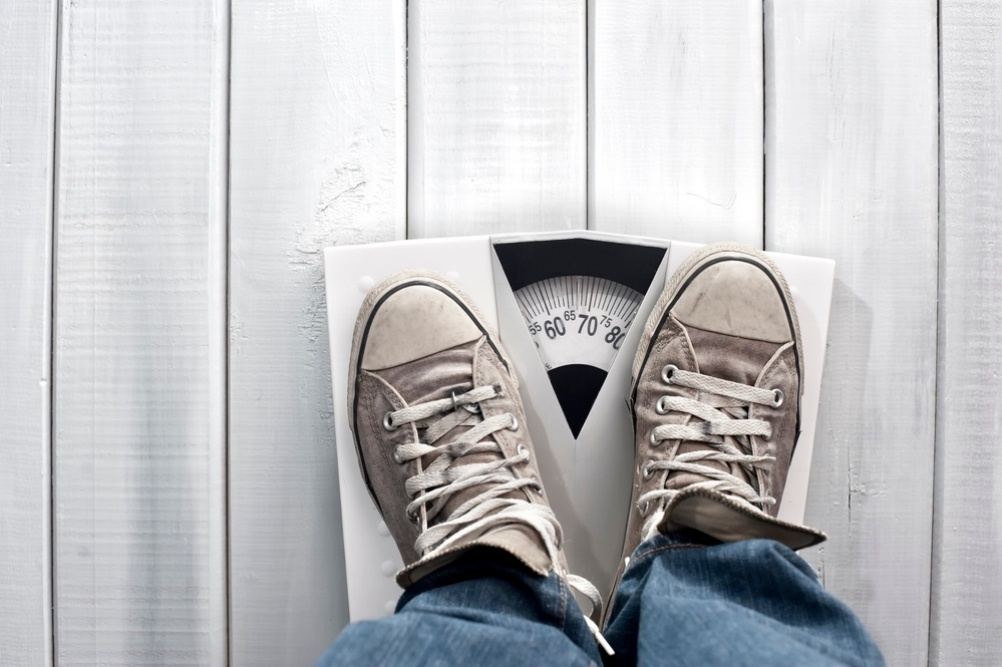

In the past, problems relating to women’s infertility have received more attention than the issues that contribute to men’s infertility, but the tide is turning. Fertility specialists now know that up to a third of couples who seek help conceiving deal with male-factor infertility, and today researchers are investigating how a man’s lifestyle may affect his fertility. One area that has begun to attract notice is weight gain and obesity. The links between female obesity and infertility are well established, but recent studies have suggested that a prospective father’s weight may also have a significant impact on a couple’s ability to conceive.
{{cta(‘e8fe0476-328c-4a4c-9d4e-f0bc4bdd5c7c’)}}
Can a man’s weight affect his fertility?
In 2013, researchers conducted a study where they collected semen samples from 468 men in committed relationships, with no previous diagnosis of infertility. The samples were evaluated for the volume of the sample (what amount of semen was produced) and for the quantity and quality of the sperm itself, including motility (how the sperm moved) and morphology (what percentage of the sperm were the correct, healthy shape.) The same men were weighed, their waistlines were measured, and the body mass index (BMI) was calculated for each man. The researchers were looking for a connection between a man’s weight and his potential fertility.
What did the study find?
What the researchers found was concerning. The men in the study who were overweight or obese produced lower volumes of semen than those at healthy weights. Those men with waists that measured 40 or more inches had a 22 percent lower total sperm count than the men whose waistlines were less than 37 inches.
This was a small study, but the link the researchers drew tends to back up other studies that have looked at obesity and male infertility. In 2012, a survey looked at a data pool drawn from 14 studies determined that obese men have a higher incidence of low sperm count (32.4 percent) than men of a healthy weight (24%). A more serious men’s infertility issue, azoospermia (a complete lack of viable sperm in the semen) was also more common in obese men: 6.9 percent versus 2.6 percent for men of a healthy weight. Another review in 2013 took a close look at existing research and concluded that obesity not only impacted fertility but may also negatively impact the health and viability of embryos conceived with the help of assisted reproductive technologies (ART) such as IVF.
How does a man’s weight affect his fertility rates?
Exactly how a man’s weight affects his fertility is still not completely understood, but fertility specialists have some theories. There may be a number of ways that excess body fat impacts male fertility, and in many cases more than one may contribute to the problem at the same time:
-
Testosterone levels
Fat cells are instrumental in the way the body produces and manages hormones, and when body fat gets out of balance, hormones can, too. Overweight men tend to have lower levels of testosterone and higher levels of the female hormone estrogen. This could be affecting how they produce semen and sperm.
-
Raised temperature
The body’s production of sperm has been shown to be highly sensitive to temperature. Research has found that increased testicular heat is associated with lower sperm count and quality. The insulation of excess body fat may raise the temperature in the scrotum, causing damage to the sperm.
-
Sexual dysfunction
Obesity has been linked to higher rates of erectile dysfunction in men. The reasons are complex, but it goes beyond issues of body image or energy: high blood pressure caused by obesity can affect the way blood flows to the penis, sometimes making it difficult to achieve or maintain an erection.
How to deal with weight-related infertility
Infertility and excess weight can be a painful combination to deal with. Patients may suffer from feelings of shame, guilt, or inadequacy, and it’s not easy to make lifestyle changes under the pressure of such negative emotions. If you are concerned that your weight may be affecting your fertility, it’s important to find sources of support and to offer yourself some compassion. It also makes sense to get a full diagnostic workup with a fertility specialist, including a sperm analysis.
If you do decide to lose weight before attempting to conceive, make sure you include yourself in your motivation. Taking steps to improve your health is a powerful step towards parenthood– it’s a positive move to be proud of — but it is also a vital step to self care. It can also bring you and your partner closer as a team. Healthy diet and exercise habits are recommended for both men and women who are hoping to conceive, and these are things that you and your partner can do together.
{{cta(‘a65b5d46-984b-424f-8ee8-3107ded8598e’)}}



